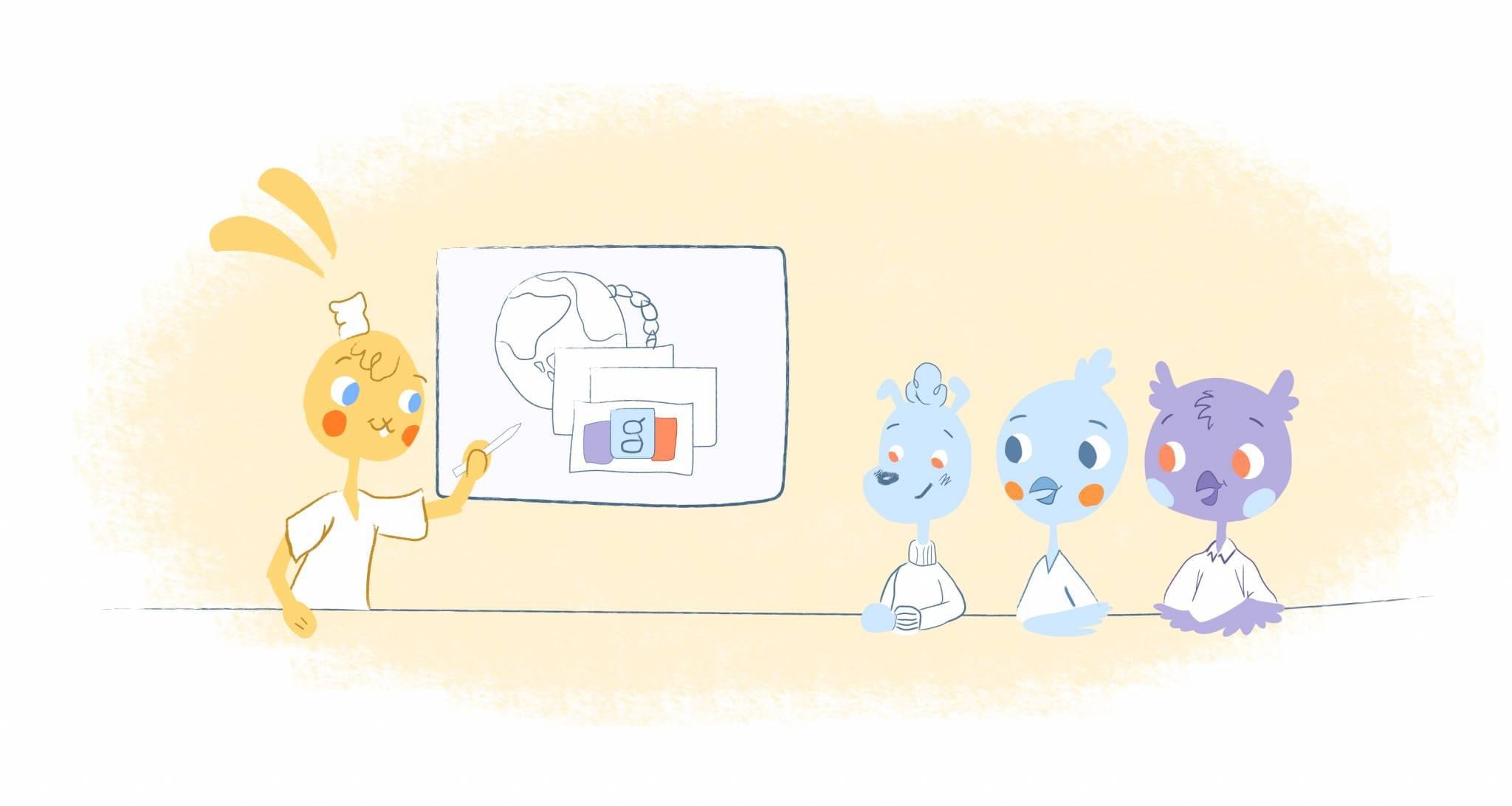

For many, the summer vacation season is upon us. This means carefree days, beach excursions, and barbeques. In fact, over half of all American adults plan on taking a summer vacation this year. Of that 53 percent, 36 percent are planning domestic travel, 15 percent international trips, and 12 percent staycations.
For those of us still working, though, it sometimes feels like a productivity obstacle course. You may feel lost as colleagues check out, response times slow down, and messages of “OOO” flood in.
The good news is that if you’re still working during this summer, you can navigate it with a strategic approach. As a result, your professional goals can still be met and you don’t lose your sanity in the process.
Planning is Paramount
Don’t let the vacation exodus get the best of you. Take charge and prepare ahead — regardless of whether your colleague or you are taking a vacation. The following areas should be prioritized:
- Chart your course. Don’t forget to take stock of upcoming deadlines and milestones before your vacation begins. Plan your work so that you can factor in potential delays due to absences from colleagues. Also, separate tasks that can be accomplished independently from those that require collaboration. In turn, you will have a clear roadmap for the weeks to come.
- Organize your priorities ruthlessly. Sort your and your team’s work into categories such as urgent, important, and non-critical — aka the Eisenhowe Matrix. Focus your attention on urgent tasks that need to be completed right away. When you have dedicated focus time, you can tackle important tasks. Consider delegating or rescheduling non-critical ones.
- Communicate early and clearly. If colleagues are absent, inform them about your workload and any potential delay. If necessary, adjust timelines.
- Delegate and empower. Is it possible to delegate specific tasks to colleagues who are still around? You can empower them by providing clear instructions and the resources they need for success.
- Prepare documentation. Keep detailed records of ongoing projects, particularly those involving colleagues who will be away. This will minimize disruptions and ensure smooth handoffs.
Mastering Your Workflow
Once you have a plan in place, let’s discuss how to maintain your productivity over the summer break.
- Become an early bird. Make the most of quiet mornings when colleagues aren’t emailing you. Specifically, use this less-distracting concentrate on deep work tasks.
- Batch similar tasks. To improve efficiency, group similar tasks together. For instance, you can dedicate some time to responding to emails and returning phone calls.
- Embrace automation. By automating repetitive tasks, you can save yourself time and energy. This allows you to focus on complex work that requires your unique human touch.
- Become a time management ninja. Time management is key. Maintain focus and avoid burnout by using time management techniques like the Pomodoro Technique (working in 25-minute intervals with short breaks). You should also analyze your most productive hours and schedule demanding tasks during those times.
- Optimize your workspace. To create an inspiring and focused workspace, declutter your desk and personalize your workspace.
- Harness the power of “no.” If a task or project is not mission-critical, politely decline it. After all, it should not be your responsibility to shoulder the workload of all your co-workers during summer vacations.
Communication and Collaboration Strategies for the Vacation Void
When colleagues are scattered and check in sporadically, it can be difficult to communicate and collaborate. In order to keep projects moving forward, here are some tips for bridging the communication gap:
- Utilize asynchronous communication. Use project management software, shared documents, and internal wikis to update and share information. As a result, colleagues can catch up at their own pace.
- Identify the “go-to” person. When absent colleagues’ input is needed, designate a temporary point person. Until the colleague returns, this individual can access information, answer basic questions, and keep projects on track.
- Schedule strategic check-ins. Keep in touch with colleagues — even if you or they are on vacation. For example, keep everyone aligned by scheduling short check-in meetings or video conferences. Sharing your calendar makes this smoother.
- Set realistic expectations. If colleagues are out of the office, be upfront about possible communication delays.
Taking Care of Yourself
Summer is a time for renewal, and you should take advantage of it as well! To avoid burnout and maintain energy, follow these tips:
- Maintain healthy boundaries. Stick to your work hours as much as possible. Also, after work, disconnect and resist checking emails.
- Schedule breaks and get outside. Don’t get shackled to your desk. Get some fresh air, take regular breaks, and enjoy the sunshine.
- Stay on top of your routine. Get enough sleep and eat nutritious meals on a regular basis. A healthy body makes the mind more productive.
- Don’t forget the fun. Take advantage of your free time by planning some fun activities. If you take a break from work, you’ll feel refreshed when you return.
Turning the Tables: Leverage the Summer Slowdown
There are also opportunities for professional growth during summer vacation. If you have some quiet time, here are some ways to use it instead of falling prey to boredom.
- Catch up on professional development. Consider taking online courses, attending webinars, or reading industry publications with a reduced workload.
- Tackle long-term projects. Are there any strategic initiatives you’ve been meaning to tackle? During the summer, you can devote time to these long-term projects.
- Brainstorm and plan. You should take some time to reflect on your goals and aspirations. Think of new ideas and make strategic plans during the quieter time.
Remember, you are not alone!
Many professionals face challenges during the summer season. However, with these tips and a strategic approach, you can maintain productivity and take advantage of this time. So, don’t let the summer slump put you down. Get your goals accomplished, and maybe even sneak in a few guilt-free moments of enjoyment!
FAQs
How can I stay productive when my colleagues are on vacation?
- Plan and prioritize. Before vacations, make a detailed plan outlining tasks and deadlines. Think about what you can do independently and what you must collaborate on.
- Utilize asynchronous communication. If a colleague is out, leave a clear and concise message for them. A detailed email, project management tool, or pre-recorded video update could be used.
- Embrace focus time. Fewer interruptions can allow you to focus on tasks that are often put off.
What should I do about urgent matters that arise during absences?
- Identify a backup. Assign a point person before someone leaves who can handle minor issues and answer basic questions.
- Set expectations upfront. When dealing with urgent matters, use email auto-replies or voicemail messages to clearly communicate response times.
- Use internal resources. During vacation periods, many companies have a dedicated staff or knowledge base that can answer common questions.
How can I avoid burnout while still being available?
- Set boundaries. Set specific times to check work emails, texts, and Slack messages to avoid constant availability.
- Delegate where possible. To maintain workflow, delegate smaller tasks to colleagues with similar skills.
- Prioritize self-care. To avoid exhaustion, take regular breaks, sleep enough, and maintain a healthy work-life balance.
Should I check work emails while colleagues are on vacation?
- Limit yourself. Establish a schedule for checking work emails while others are away. Beware of constant checking, which can interfere with your own productivity.
- Focus on urgent matters. If you check your emails, prioritize the messages that require immediate attention.
Should I work at all if my colleagues are on vacation?
- Respect vacation time. During vacations, it is important to respect colleagues’ right to disconnect and recharge.
- Focus on independent tasks. If some work needs to be done, prioritize tasks that can be completed independently to minimize disruptions.
Is it okay to take some time off myself during the summer?
Absolutely! PTO usage contributes to employee happiness and the company’s culture.
You should also plan your vacation strategically. For example, when workloads are lighter or key colleagues are taking vacations, consider scheduling time off.
Additionally, set up auto-replies and delegate tasks. Setting clear expectations and making necessary arrangements can ensure smooth operations while you’re away.
Image Credit: Andrea Piacquadio; Pexels











John Hall
John Hall is the co-founder of Calendar a scheduling and time management app. He’s also a keynote speaker that you can book at http://www.johnhallspeaking.com.